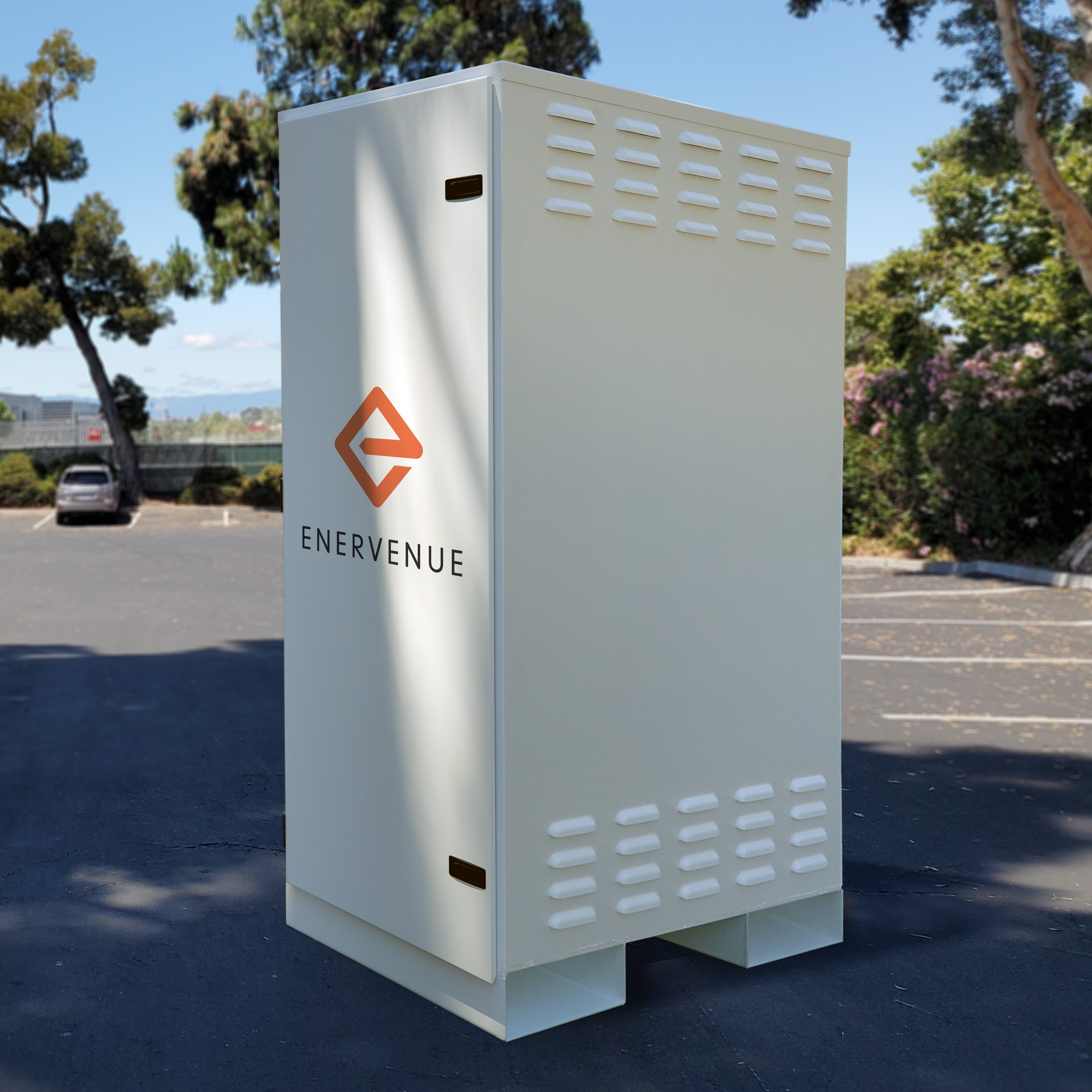EnerVenue raises $100M to accelerate clean energy using nickel-hydrogen batteries

EnerVenue CEO Jorg Heinemann Image Credits: EnerVenue(opens in a brand-new window )Think of a nickel-hydrogen battery as a sort of battery-fuel cell hybrid. It charges by developing up hydrogen inside a pressure vessel, and when it releases, that hydrogen gets reabsorbed in water, Heinemann described. One of the key distinctions between the batteries in space and the one’s EnerVenue is developing on Earth is the materials. The nickel-hydrogen batteries in orbit use a platinum electrode, which Heinemann stated represent as much as 70% of the expense of the battery. The tradition innovation likewise utilizes a ceramic separator, another high expense. EnerVenue’s crucial innovation is finding brand-new, inexpensive and Earth-abundant materials (though the precise materials they aren’t sharing).
The technology itself– nickel-hydrogen batteries– isn’t actually brand-new. In reality, it’s been used for years in aerospace applications, to power whatever from satellites to the International Space Station and the Hubble Telescope. Nickel-hydrogen had actually been too pricey to scale for terrestrial applications, until Stanford University professor (and now EnerVenue chairman) Yi Cui identified a way to adjust the products and bring the expenses way, method down.
Nickel-hydrogen has a variety of crucial benefits over lithium-ion, according to EnerVenue: it can endure super-high and super-low temperatures (so no requirement for air conditioners or thermal management systems); it needs really little to no maintenance; and it has a far longer life expectancy.
The innovation has caught the eye of two giants in the oil and gas market, energy infrastructure business Schlumberger and Saudi Aramco’s VC arm, which together with Stanford University have raised $100 million in Series A financing. The investment occurs a year after EnerVenue raised a $12 million seed. The business is planning on utilizing the funds to scale its nickel-hydrogen battery production, consisting of a Gigafactory in the U.S., and has gotten in a production and distribution arrangement with Schlumberger for worldwide markets.
“As renewables get cheaper and less expensive, there’s great deals of time of the day where you’ve got, state, a one- to four-hour window of close to totally free power that can be used to charge something, and after that it has to be dispatched quick or slow depending on when the grid needs it,” he stated. “And our battery does that actually well.”
Fixed energy storage might have a various future. EnerVenue is presently in “late-stage” conversations on the website and partner for a United States factory to produce approximately one gigawatt-hour of batteries yearly, with the objective of eventually scaling even beyond that. Heinemann estimates that the tooling cap-ex per megawatt hour ought to be simply 20% that of lithium ion. Under the collaboration with Schlumberger, the facilities business will likewise be individually making batteries and selling them in Europe and the Middle East.
It’s notable that this round was funded by two companies that loom large in the oil and gas industry. “I believe nearly 100% of the oil and gas market is now pivoting to renewables in a big way,” Heinemann included. “They all see the future as, the energy mix is shifting. We’re going to be 75% renewable by mid-century, a lot of think it’s going to happen quicker, and those are based upon research studies that the oil and gas market did. They see that and they understand they require a brand-new play.”
In order to support a buildout of renewable resource, which tends to over-generate electrical power at particular times of day and under-generate at others, the grid is going to need a lot of batteries. While lithium-ion works fine for consumer electronic devices and even electrical cars, battery startup EnerVenue states it developed a breakthrough innovation to reinvent stationary energy storage.

Image Credits: EnerVenue Don’t expect nickel-hydrogen to begin appearing in your iPhone anytime quickly. The technology is heavy and huge– even reduced as much as possible, a nickel-hydrogen battery is still around the size of a two-liter water flask, so lithium-ion will certainly still play a major role in the future.
“I invested practically three and a half years prior to EnerVenue searching for a battery storage innovation that I thought might take on lithium-ion,” CEO Jorg Heinemann told TechCrunch in a current interview. “I had basically quit.” He met with Cui, who had handled through his research study to bring the cost down from around $20,000 per kilowatt hour to $100 per kilowatt hour within line of sight– a jaw-dropping reduction that puts it on-par with existing energy storage innovation today.
“I invested almost three and a half years prior to EnerVenue looking for a battery storage technology that I thought could complete with lithium-ion,” CEO Jorg Heinemann told TechCrunch in a current interview. EnerVenue CEO Jorg Heinemann Image Credits: EnerVenue(opens in a new window )Think brand-new a nickel-hydrogen battery as a kind of battery-fuel cell hybrid. The nickel-hydrogen batteries in orbit use a platinum electrode, which Heinemann said accounts for as much as 70% of the expense of the battery. EnerVenue’s batteries can charge and discharge at different speeds depending on a consumer’s requirements. EnerVenue is presently in “late-stage” discussions on the site and partner for a United States factory to produce up to one gigawatt-hour of batteries annually, with the goal of ultimately scaling even beyond that.
“It’s a technology that works today,” Heinemann stated. “We’re not waiting on an innovation development, there’s no science task in our future that we have to go accomplish in order to prove out something. We understand it works.”
Heinemann likewise hinted that an advanced team within the company is working on a separate technology development that could bring the cost down even further, to the variety of around $30 per kilowatt hour or less.
Those aren’t the only benefits. EnerVenue’s batteries can release and charge at different speeds depending upon a consumer’s needs. It can go from a 10-minute charge or discharge to as slow as a 10-20 hour charge-discharge cycle, though the company is enhancing for a roughly two-hour charge and four- to eight-hour discharge. EnerVenue’s batteries are also created for 30,000 cycles without experiencing a decrease in performance.
